モモちゃん様専用!新米 R5年度ミルキークイーン白米27kg小分け版
(税込) 送料込み
商品の説明
新米 R5年ミルキークイーン白米27kg小分け版 もちっと食感!
★本年も無事収穫できました!宜しくお願い致します★
...他の大きさも出品しています!
小分けはお米の化粧箱に梱包します。
白米希望では9kg×3袋
玄米希望では10kg×3袋です。
白米/玄米/が選択可能です。
今回小分けの袋は無地のものになります!
箱も少しデザインが違いますが、ご了承ください( > > )/
●①もちもち感の評価の高いミルキークイーン
毎年人気の高い「ミルキークイーン」また出品します。搗き立てで新鮮な新米をご賞味ください!
●②ミルキークイーンの食感などは?
ごはんのつやが多く、米粒が柔らかいのが特徴です。またお米にもちもち感である粘りがありますのでそれがまた人気の秘訣です。このお米は冷めても美味しいと思うお米です。
●③発送直前の精米でスーパーにあるお米とは違い、なるべく新鮮なお米をお届けします。
精米したてと精米後ある程度期間がたったお米では差が出ると思います。
☆ちょっとしたこだわり☆彡
必ずお届け前に玄米から精米や梱包しますので新鮮な状態で発送できます!
●④■宅配になります■ので重たいお米も運ばなくてOKで玄関先まで届きます。!
●⑤毎年数には限りがございます。あまりたくさん栽培できないので1年中はありません。
気になる方はぜひお早目に!
◆もちもち感が人気のお米ミルキークイーンをぜひ食べてみてください。◆
ーーーーー
☆ご購入後の流れ~☆こちらからのご連絡が遅くなるかもしれませんので
●精米の有無と
●配達希望時間帯と
●小分けの有無をお知らせくださるとスムーズに行えますので、
お手数ですがよろしくお願いします。
●発送について
*沖縄県は発送できません。
箱と袋の図柄は変わることがございますご了承願います。
また大袋の場合は2重袋での発送となります
●保存方法賞味期限について
冬場は常温でも構いません。
湿気のない冷暗所での保存をお願いします。
白米の賞味期限は1か月を目安がよろしいかと思います!
色選石抜き済み
よくあることですが、
玄米1つ白米2つという設定も連絡いただければ可能です!
30kgの白米では一気に食べれないし、保管が長くなってしまうという場合
玄米2つで白米1つでしばらくは玄米で保管しておき、白米が食べ終わったら残りの玄米を商品の情報
| カテゴリー | その他 > 食品 > 米 |
|---|---|
| 商品の状態 | 新品、未使用 |

新米R4年ミルキークイーン白米27kg小分け版 もちっと食感! - 米/穀物

☆新米R2年ミルキープリンセス♪もちっとするお米白米27kg便利な
新米 クーポンご利用で10680円!米 お米 27kg ミルキークイーン 無洗米 熊本県産 令和5年産 30kg みるきーくいーん : miruki-musen30 : こめたつ - 通販 - Yahoo!ショッピング

新米R4年ミルキークイーン白米27kg小分け版 もちっと食感! - 米/穀物
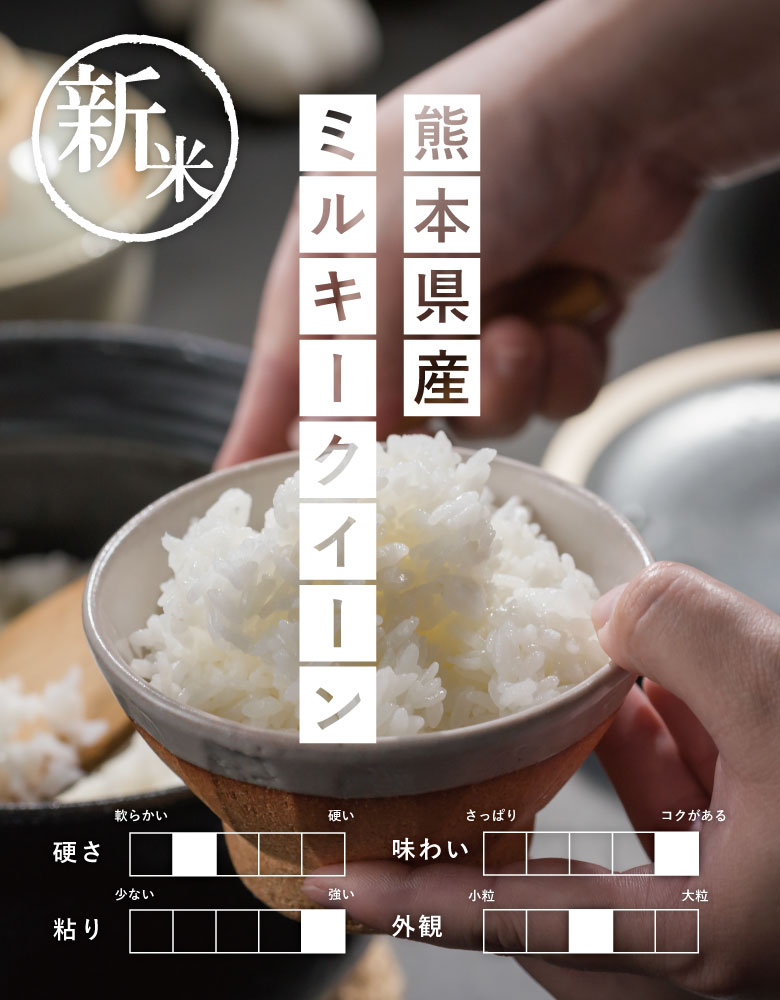
新米 クーポンご利用で10680円!米 お米 27kg ミルキークイーン 無洗米 熊本県産 令和5年産 30kg みるきーくいーん
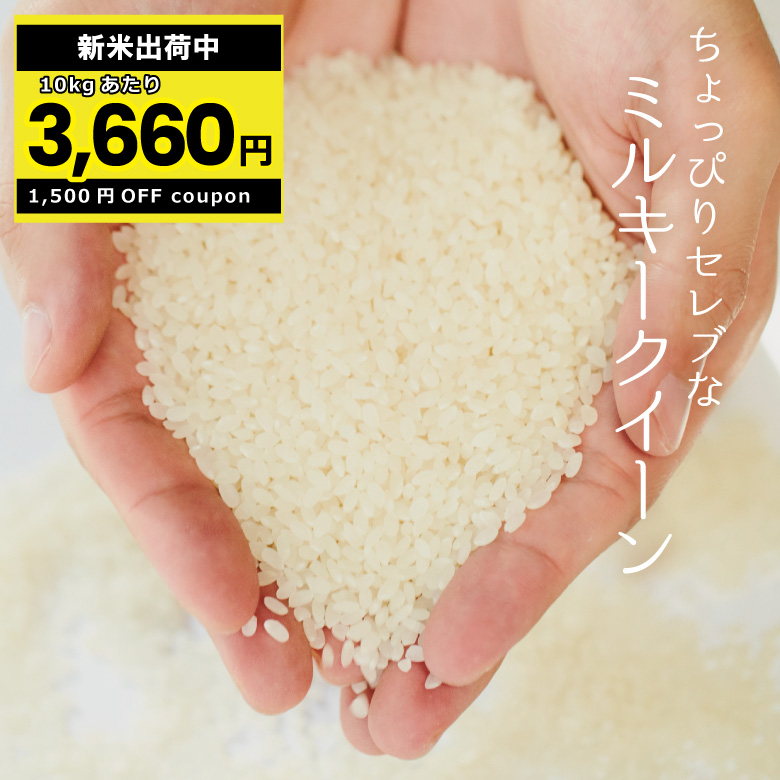
楽天市場】【10kgあたり3,660円!クーポン配布中!】新米 米 30kg 送料

☆新米R2年ミルキープリンセス♪もちっとするお米白米27kg便利な

新米R4年ミルキークイーン白米27kg小分け版 もちっと食感! - 米/穀物
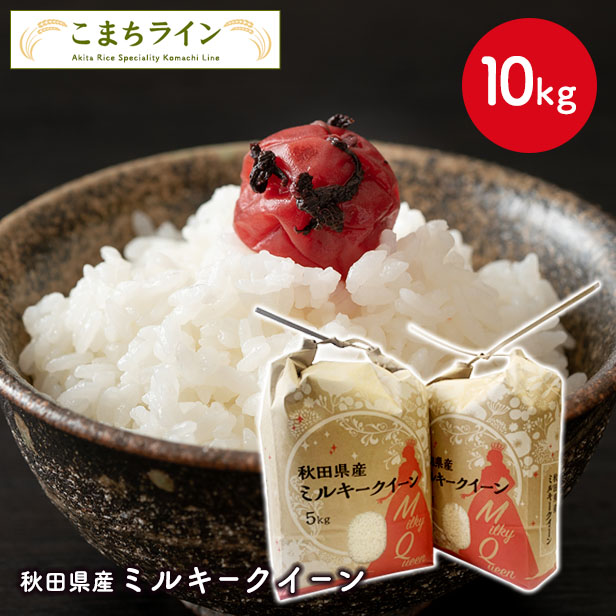
楽天市場】新米!【ミルキークイーン 白米 10kg】令和5年産 秋田県産

新米R3年ミルキークイーンもちっとした食感が人気のお米白米27kg

新米R4年ミルキークイーン白米27kg小分け版 もちっと食感! - 米/穀物
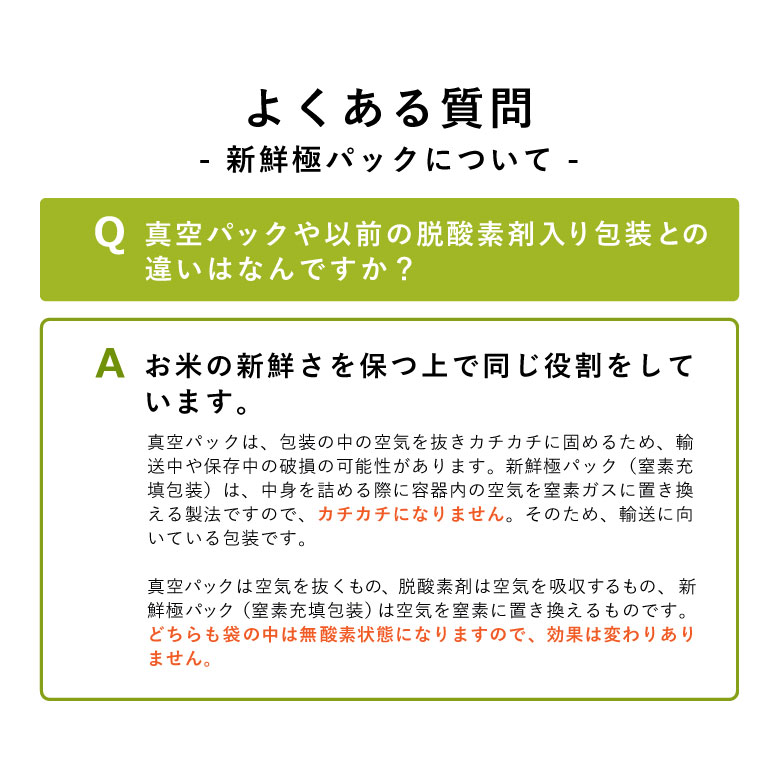
楽天市場】【10kgあたり3,660円!クーポン配布中!】新米 米 30kg 送料

受注生産品】 犬用のお洋服 リール - subori.com.mx

新米R3年ミルキークイーンもちっとした食感が人気のお米白米27kg
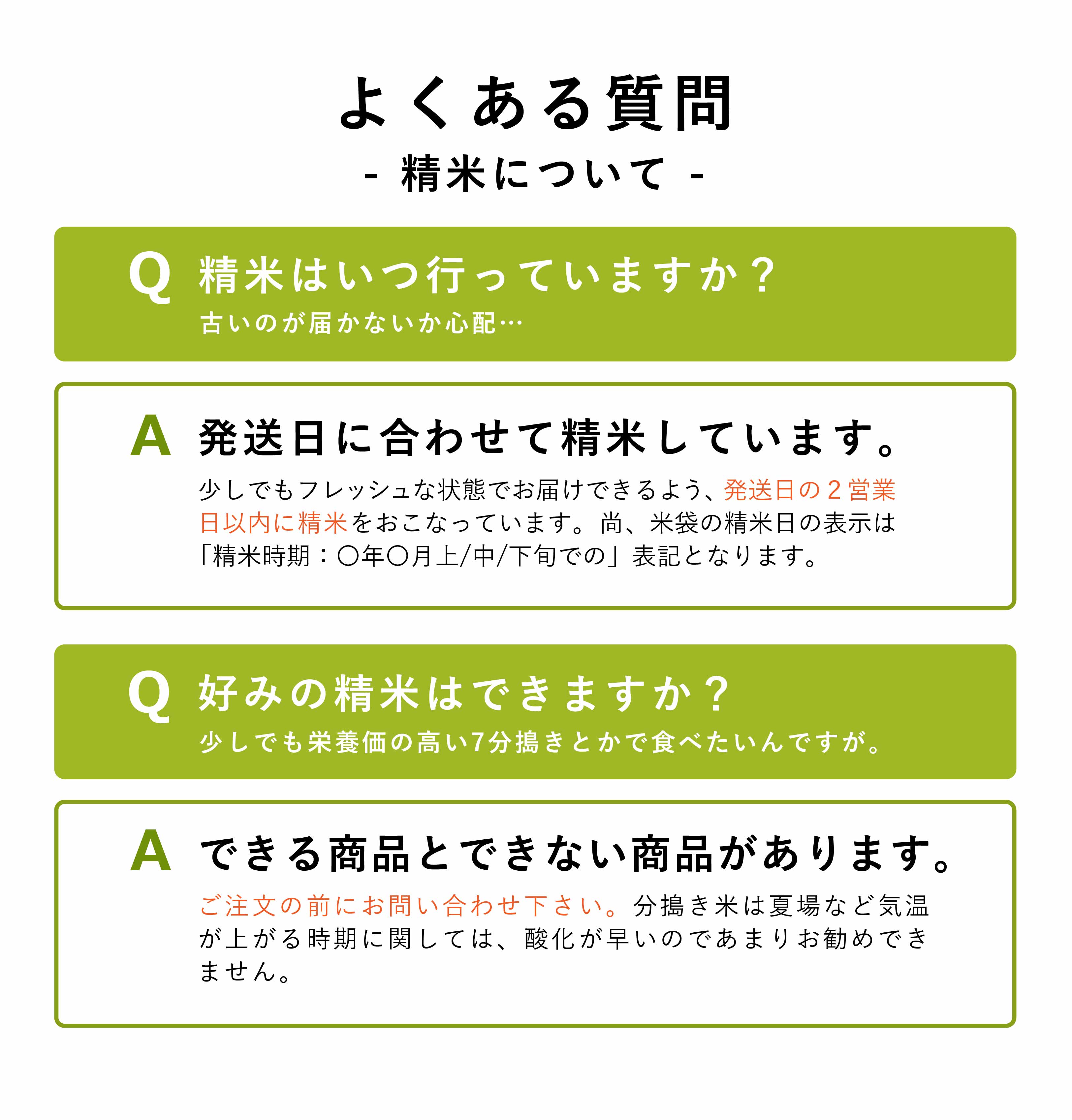
楽天市場】【10kgあたり3,660円!クーポン配布中!】新米 米 30kg 送料
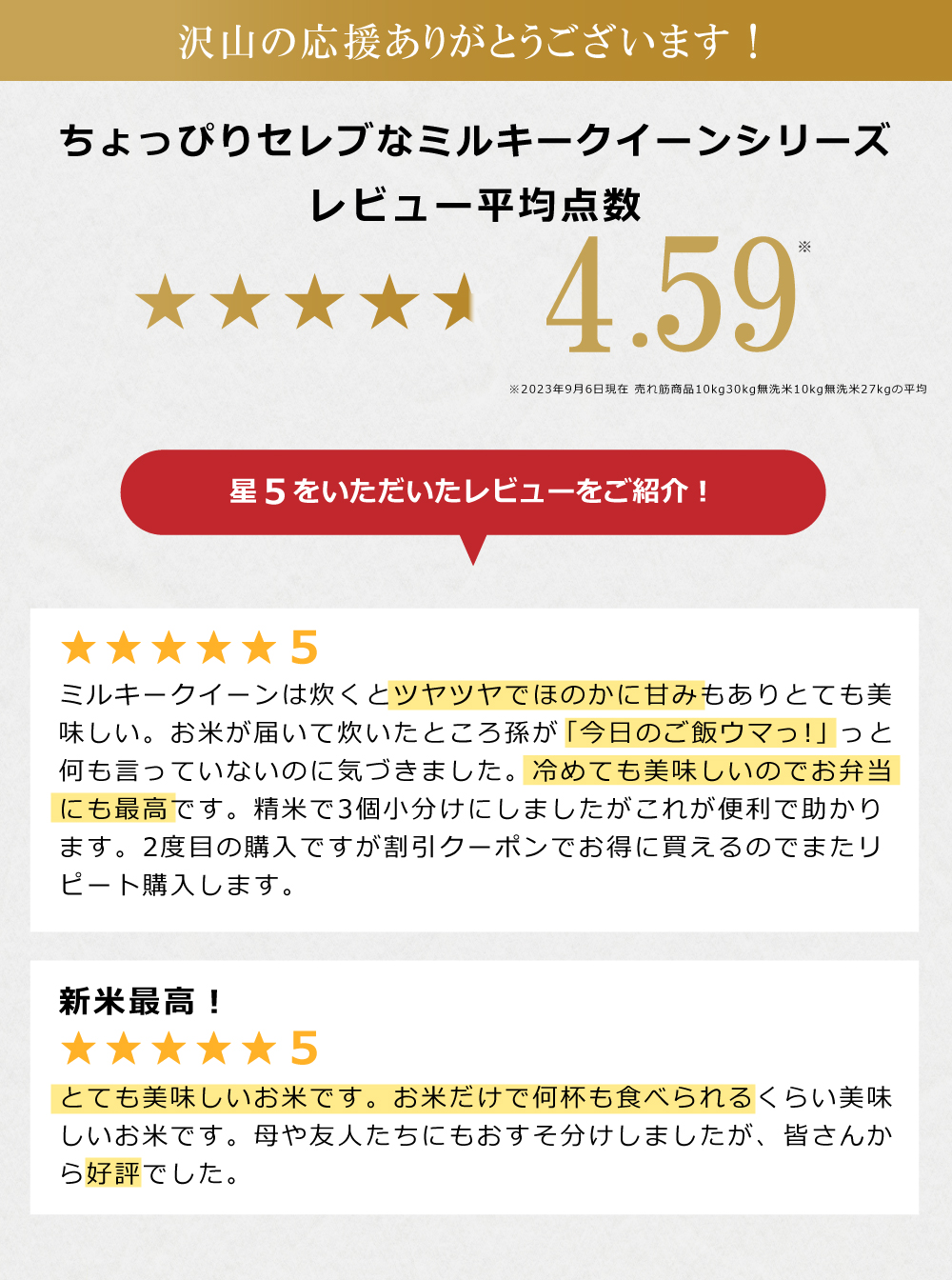
楽天市場】【10kgあたり3,660円!クーポン配布中!】新米 米 30kg 送料

独特な店 希少 高濃度 CBGファーマヘンプ ペースト30% その他

新米【令和5年産】ふっくらもっちり 茨城県産 ミルキークイーン 白米
新米 クーポンご利用で10680円!米 お米 27kg ミルキークイーン 無洗米 熊本県産 令和5年産 30kg みるきーくいーん

独特な店 希少 高濃度 CBGファーマヘンプ ペースト30% その他
新米 クーポンご利用で10680円!米 お米 27kg ミルキークイーン 無洗米

楽天市場】【10kgあたり3,660円!クーポン配布中!】新米 米 30kg 送料

新米R4年ミルキークイーン白米27kg小分け版 もちっと食感! - 米/穀物

話題の行列 日清 ひかきんプレミアム みそきんメシ 濃厚味噌 HIKAKIN 1

ATON ブルゾン-

楽天市場】【10kgあたり3,660円!クーポン配布中!】新米 米 30kg 送料

☆新米R2年ミルキープリンセス♪もちっとするお米白米27kg便利な
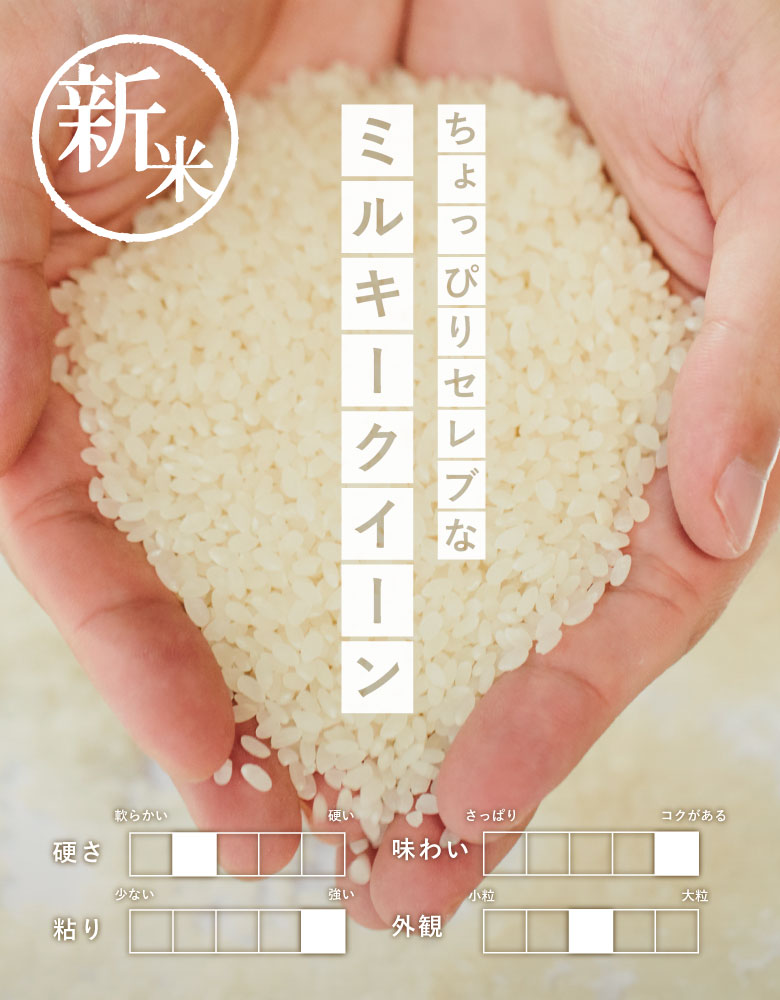
楽天市場】【10kgあたり3,660円!クーポン配布中!】新米 米 30kg 送料

Amazon.co.jp: 新米 ミルキークイーン 白米 5kg 令和5年 滋賀県産 米

独特な店 希少 高濃度 CBGファーマヘンプ ペースト30% その他

楽天市場】【新米】ミルキークイーン 10kg(5kg×2袋) 新潟県産 令和5

楽天市場】【10kgあたり3,660円!クーポン配布中!】新米 米 30kg 送料

楽天市場】新米!【ミルキークイーン 白米 10kg】令和5年産 秋田県産
新米 クーポンご利用で10680円!米 お米 27kg ミルキークイーン 無洗米 熊本県産 令和5年産 30kg みるきーくいーん

名入れ無料】 有機自然薯 5キロ その他 - rozinibrazil.com
新米【令和5年産】ふっくらもっちり 茨城県産 ミルキークイーン 白米

令和5年長野県産新米ミルキークイーン白米真空パック5kg×5袋25kg農家直送■炊飯食味値91点極上米 送料無料(沖縄 離島を除く) こだわりの美味しいお米を産地直送通販でお届け
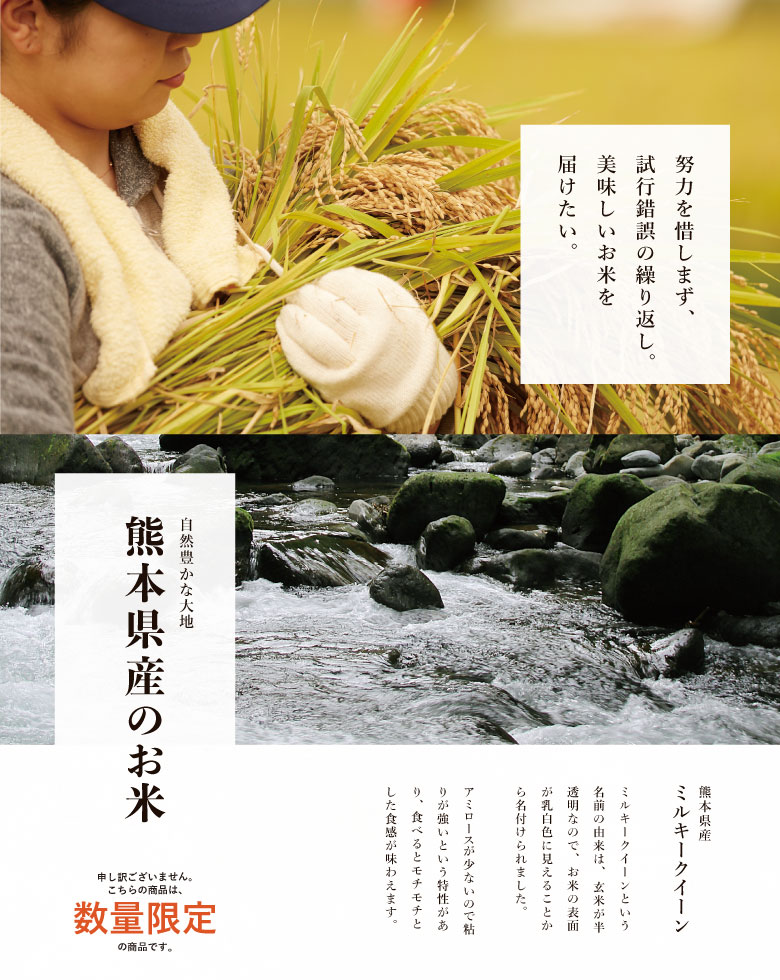
新米 クーポンご利用で10680円!米 お米 27kg ミルキークイーン 無洗米

Amazon.co.jp: 新米 ミルキークイーン 令和5年産 長崎県五島列島 白米
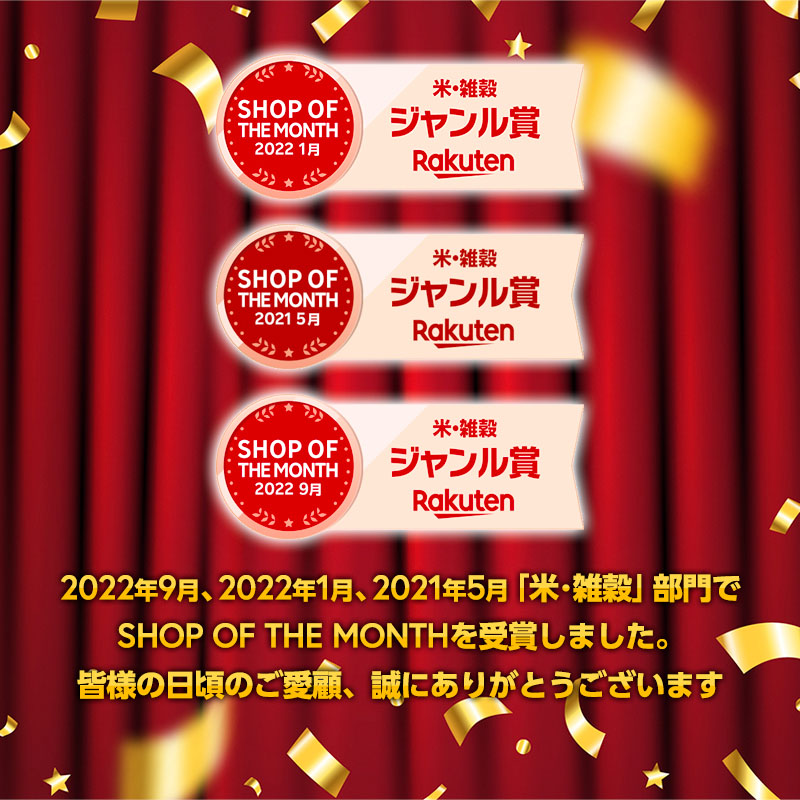
楽天市場】新米!【ミルキークイーン 白米 10kg】令和5年産 秋田県産





商品の情報
メルカリ安心への取り組み
お金は事務局に支払われ、評価後に振り込まれます
出品者
スピード発送
この出品者は平均24時間以内に発送しています














